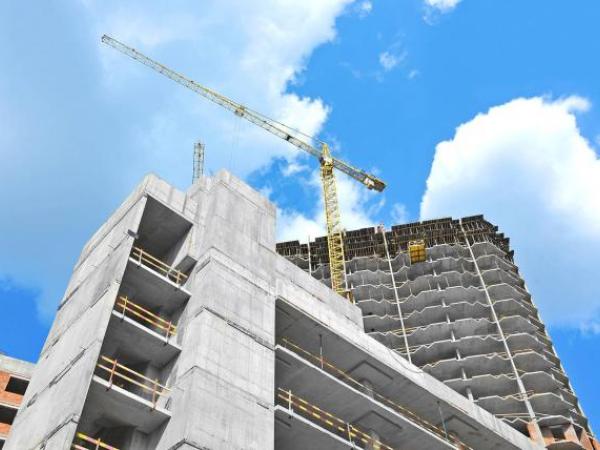Economists agree that for the smooth running of the GDP, the growth of investment, the healthy dynamics of employment, the behavior of inflation, the impulse of exports and the other cardinal variables, are fundamental singular insights that the actors of the economy have.
Thus, for example, the expectations about the economic conditions themselves and those of the country in general measured by the Consumer Confidence Index (CCI)determine their willingness to spend and serve as support for predictions about the behavior of the demand for goods and services, consequently marking decisions of investment and entrepreneurship.
Within this line, legal certainty is basically understood as the trust and tranquility generated by the fact that regulations issued by the State and the practical application that they be made by the legitimate authorities in particular and concrete cases, follow parameters of fairness, equality, uniformity, coherence and stability.
From the perspective of construction sectorlegal certainty is part of the variables and circumstances that investors usually take into account to make decisions on promoting projects, construction of significant volumes of buildings, creation of companies, expansions, etc.
An indicator that, as a result of objective observation and measurement, would numerically reflect the confidence that each country can reasonably have on the effective respect for the rules of the game, the maintenance of its general stability and real fairness, coherence and uniformity when solving legitimate authorities individual and concrete cases, would be the so-called Legal Security Index (ISJ)which would provide a valuable economic analysis tool.
According to the Forum for Studies on the Administration of Justice (FORES), there is no such thing as an ISJ, in the sense of a value that technically reflects the aforementioned elements, considering the evident difficulty that flows from its very nature for the effect; but we can infer the level of legal certainty of a State, taking into account political, economic and institutional factors.
Within the latter, the State of Law Index of the World Justice Project (2021) that on a scale from zero (minimum adherence to the rule of law) to one (maximum adherence), rank countries comparatively as a result of eight variables: (i) limitations to the powers of the State, (ii) absence of corruption, (iii) civil justice, (iv) government openness, (v) fundamental rights, (vi) security and order, (vii ) criminal justice and (viii) regulatory compliance.
Within this last variable, in which the impact of (i) improper influences, (ii) unjustified delays, (iii) effective enforcement, (iv) respect for due process and (iv) compensation is analyzed. in expropriations, Colombia presents an index of 0.52, being located ranked 12th out of 32 in the region and 62 out of 139 globally.
Although the correlation between adherence to the rule of law and the volume of private investment has not been quantified, the rules of experience allow us to conclude that the greater the confidence in the former, the greater the volume of the latter, as seems to be confirmed by the fact that nations such as Japan , France, Canada or Chile -with indices closer to 1- have proportionally higher levels of private investmentand that countries like Nicaragua or Bolivia -below 0.5- suffer from significant deficits in this regard.
The classification prepared by IESE Insight provides another analysis tool, which, depending on the degree of attractiveness to investment, places Japan and France as ‘highly attractive’, Bolivia in the range of those to be avoided, and Colombia as a country of ‘ diminishing interest-in observation-‘.
In the same vein, the 2017 Andi report, ‘Importance of legal certainty for growth and investment’, explains how the impact of the legal uncertainty in investment decisions in a company was rated an average of 3.38 out of 5 and reports that the Center for Financial Stability (CFS) of the United States, in its 2012-2013 Legal Security Index, studied the regulation and application of law in 144 countries for purposes of determining the institutional and regulatory environment for the promotion of investments with a position of 75 out of 144 for Colombia.
All these elements constitute a clear indication that a high ISJ, would favorably impact and directly the volume of private investment in the construction industry, and that our country is located in positions that have a wide spectrum to improve.
In terms of housing construction, our Political Constitution assigns to the municipalities, “within the limits established by law, monitor and control activities related to the construction and disposal of real estate for housing”which constitutes a very important factor of the ‘regulatory compliance’ variable already mentioned, which will promote the ISJ to the extent that -as it should be- the local regulations are harmonized in their hermeneutics and practical application with the laws and jurisprudence of scope national, making prevail the corresponding positions in the legal pyramid.
In the case of Bogota, whose economy contributes more than a quarter of the nation’s GDP, decisions of a sanctioning nature that do not follow the jurisprudential line of the Supreme Court or that contradict final judgments of the jurisdictional authorities, have a serious and unfavorable impact on the ISJ and consequently, the decision of private investment decisions in the construction of housing, commerce and offices.
With historical records of foreign direct investment in the construction industry in Colombia of 881 million dollars in 2019 and 212 million dollars so far in 2021, there is still a long way to go. However, decisions such as those referred to here do not precisely contribute to shortening it.
FELIPE PINILLA ACEVEDO
BRIEFCASE

















